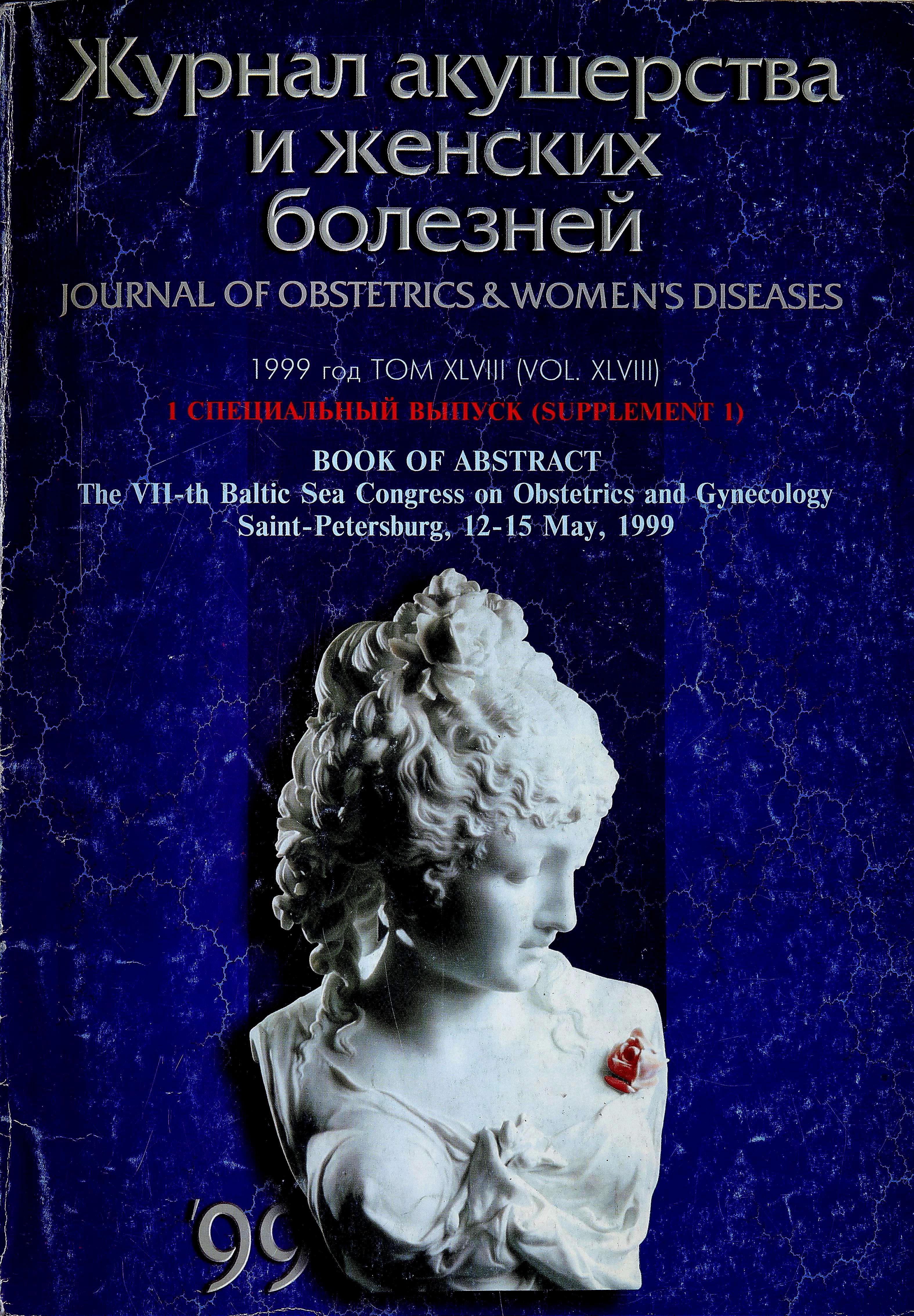Placental a1 - microglobulin and fertility a1 - microglobulin in diagnosis intrauterine infections
- Authors: Tchounaeva M.B.1, Strizhova N.V.1
-
Affiliations:
- Russian State Medical University
- Issue: Vol 48, No 5S (1999)
- Pages: 159-159
- Section: Articles
- Submitted: 23.02.2022
- Accepted: 23.02.2022
- Published: 15.12.1999
- URL: https://journals.eco-vector.com/jowd/article/view/101459
- DOI: https://doi.org/10.17816/JOWD101459
- ID: 101459
Cite item
Full Text
Abstract
Objective: To assess the clinical significance placental proteins in diagnosis of intrauterine infection.
Full Text
Objective: To assess the clinical significance placental proteins in diagnosis of intrauterine infection.
Methods: Placental - microglobulin (PAMG - 1), and fertility a1 - microglobulin (FAMG) were measured by enzyme immunoassay and solid - phase sandwich method with monoclonal antibodies. The results were processed by varational statistics methods using standard Windows-95 software.
Results: 68 pregnant women were examined at 32-40 weeks. 48 of these presented with intrauterine infection and 20 were controls. A significant increase of fertility a1 - microglobulin concentration and decrease of placental a1- microglobulin in amniotic fluid and in the blood serum pregnant women in intrauterine infection.
Conclusions: Assessment of placental protein helps define the criteria of diagnosis and prediction of intrauterine infections and predict the child’s status at birth.
About the authors
M. B. Tchounaeva
Russian State Medical University
Author for correspondence.
Email: info@eco-vector.com
Russian Federation, Moscow
N. V. Strizhova
Russian State Medical University
Email: info@eco-vector.com
Russian Federation, Moscow
References
Supplementary files







